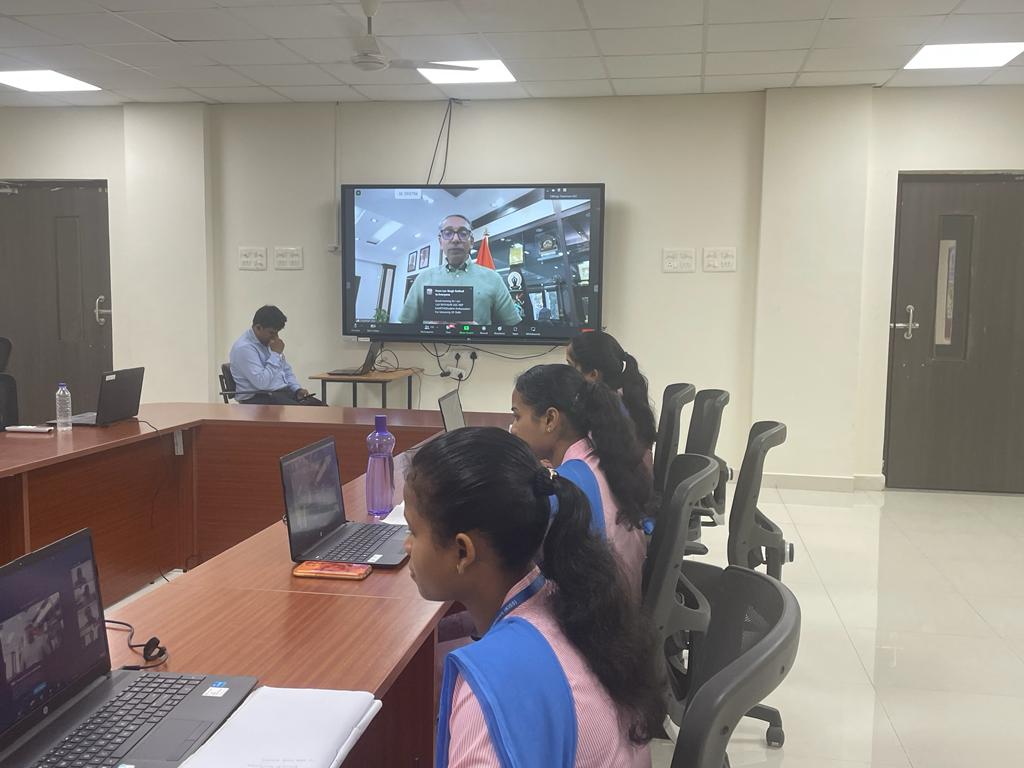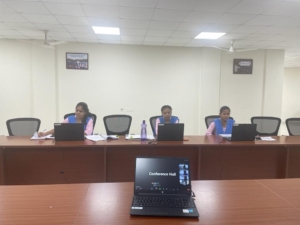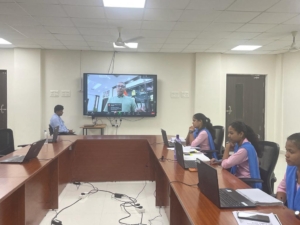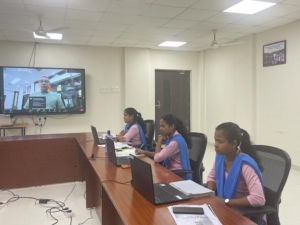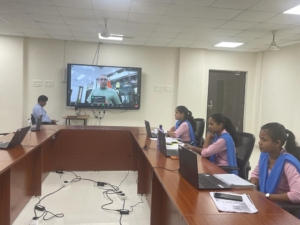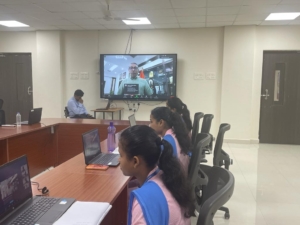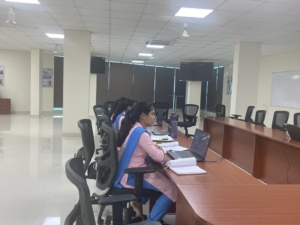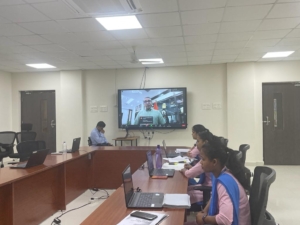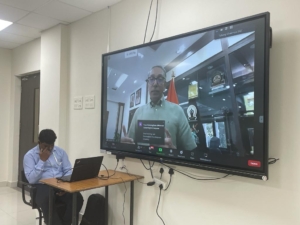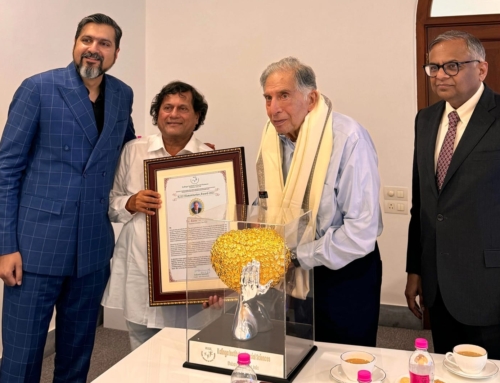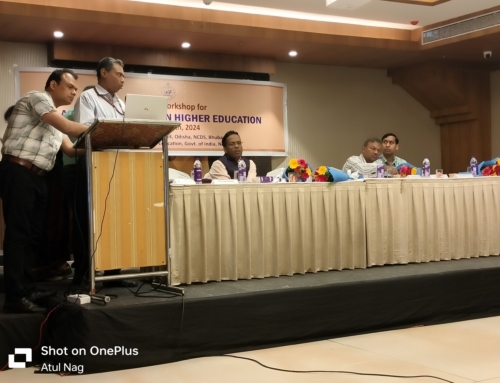Online Interaction and Orientation Session for NEP SAARTHIs that was held on 6th October 2023 at 4:00 PM.
The Online Interaction and Orientation Session for NEP SAARTHIs was organized by the University Grants Commission (UGC) to provide information and orientation regarding the National Education Policy 2020 (NEP-2020). The session aimed to equip NEP SAARTHIs with a comprehensive understanding of the key provisions and objectives of the NEP-2020.
- Participants: The session was attended by the following diverse group of NEP SAARTHIs from our institution, representing various faculties and departments.
- Muni Gomango,PG II, English Programme
- Rodana Bhoi , Chemistry Programme
- Sanjukta Bhoi, Sociology Programme
The Hon’ble Chairman of the UGC , Prof. M. Jagadesh Kumar , led the session, making it an exceptional opportunity for our NEP SAARTHIs to interact with the highest authority in the field of education.
Agenda and Highlights: The session had a well-structured agenda that included the following key points:
Overview of NEP-2020: The Hon’ble Chairman provided an in-depth overview of the National Education Policy 2020, highlighting its significance and objectives.
Key Provisions: The Chairman discussed the key provisions of the NEP-2020, such as
- Multidisciplinarity: NEP 2020 emphasizes a multidisciplinary approach in higher education. It encourages the breaking down of traditional silos between disciplines and promotes the integration of various areas of knowledge. This allows students to have a more holistic and well-rounded education.
- Academic Bank of Credits: NEP 2020 introduces the concept of an Academic Bank of Credits, which will digitally store the academic credits earned by students over time. This enables students to take courses at their own pace, accumulate credits, and even transfer them across institutions, promoting flexibility and lifelong learning.
- Research and Innovation: The policy underscores the importance of research and innovation in higher education. It encourages the establishment of research ecosystems, partnerships with industry, and the creation of a conducive environment for innovation. Research will be promoted across disciplines, and funding for research will be increased.
- Autonomy: NEP-2020 grants higher education institutions greater autonomy in decision-making, curriculum design, and governance. Institutions will have more freedom to design their courses and programs, fostering creativity and adaptability.
- Globalization: The policy aims to make India a global education destination. It encourages the establishment of international collaborations, partnerships with foreign institutions, and the integration of global best practices into the Indian higher education system.
- Technology Integration: NEP 2020 emphasizes the use of technology in education. It promotes the development of online and blended learning resources, which can facilitate innovative teaching and learning methods. The use of technology is seen as a means to increase access to quality education.
- Holistic Education: The policy advocates for a holistic approach to education, including a focus on critical thinking, problem-solving, creativity, and ethical values. It encourages the development of well-rounded individuals with a broad skill set.
- Vocational Education: NEP 2020 recognizes the importance of vocational education and vocational courses in higher education. It aims to integrate vocational education seamlessly into the higher education system to make students more employable.
- Flexible Education: The policy promotes flexible education pathways, including multiple entry and exit points in degree programs. Students will have the flexibility to choose their courses, pace of learning, and even take breaks without losing academic progress.
- Quality Assurance: NEP 2020 establishes a strong framework for quality assurance and accreditation. It seeks to ensure that higher education institutions maintain high academic standards and continuously improve their quality of education.
Interactive Q&A: Participants had the opportunity to ask questions and seek clarifications on various aspects of the NEP-2020. The Chairman patiently addressed each query, ensuring a comprehensive understanding.
Role of NEP SAARTHIs: The session emphasized the pivotal role of NEP SAARTHIs in implementing the NEP-2020 at the grassroots level and fostering educational reforms.
Key Takeaways:
- Participants gained a clear understanding of the NEP-2020’s goals, which include promoting holistic development, research, and innovation in the education sector.
- NEP SAARTHIs were inspired by the Hon’ble Chairman’s insights and vision for the future of education in India.
- The interactive Q&A session facilitated the exchange of ideas and concerns, ensuring a productive dialogue.
The Online Interaction and Orientation Session for NEP SAARTHIs was an enlightening and productive event. It provided our NEP SAARTHIs with valuable insights into the NEP-2020 and its implications for the education sector. We are confident that the knowledge gained from this session will enable them to play a more active and informed role in implementing the NEP-2020 initiatives within our institution.

